Happy birthday to India's 8th Grandmaster Surya Sekhar Ganguly
ChessBase India would like to wish India's 8th Grandmaster, Surya Sekhar Ganguly a very happy birthday. He has a lot of accolades to his name, National, Commonwealth, Asian title and he has won tournaments all over the world, Bangladesh, Australia, Philippines, UAE, Thailand and different parts of our country, India. He won the Arjuna Award in 2005. He has also worked with the team of seconds and assisted Anand in winning the World Title in Vladimir Kramnik, Veselin Topalov and Gelfand in 2008, 2010 and 2012 respectively. We bring you an interview along with a few annotated games by the elite GM himself, which was first published in chessbase.com on 5th October 2015, conducted by IM Sagar Shah. Thumbnail image: Surya Sekhar Ganguly's facebook page.
A while ago, one of India’s top players, Surya Shekhar Ganguly (2625), went on a one month trip, playing three tournaments one after the other. The tournaments that were held in India, Australia and Thailand were extremely strong and he finished first, third and second respectively. In this interview he reveals some of the trade secrets which have not been spoken much about by top players. Ganguly answers questions like, is it good to play back to back events, what to do in between the tournaments, how important is food and exercise and how should one prepare for crucial last rounds. An enlightening interview.
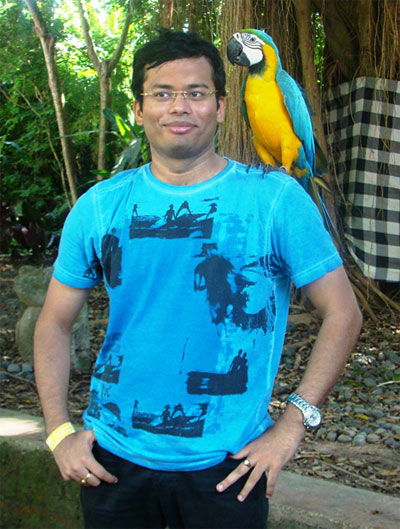
Sagar Shah (SS): Surya, you have been playing constantly for almost a month now. 15th-24th March Kolkata Open in India, 2nd-6th April Doeberl Cup in Australia and then 12th-19th Bangkok Open, Thailand. Before we go to the specific performances, how are your energy levels?
Surya Ganguly (SG): I am doing great and surprisingly not that tired. The fact that these three tournaments went well surely had a positive impact on my energy levels.
SS: You finished first at the Kolkata Open, third at the Doeberl Cup and second at the Thailand Open. Which tournament was the most special for you?
SG: Kolkata tournament was the most challenging for me, as prior to this one I had never won an international individual open tournament in my home town. The only international tournament I won here was Asian Team Championship, which was not an individual event. For quite some time now I wanted to win in Kolkata, where the pressure, as you can imagine, is very high. Naturally I was elated when I won it clearly without getting into a tiebreak.

SS: Whom would you like to dedicate these victories to?
SG: To my family and all my well-wishers who helped me in every possible way. Especially for Kolkata tournament I would like to thank my family for tolerating my mood swings during the entire event. By now they all know when to speak and when not to! I would like to show my gratitude to Indian Oil, where I work, for the constant support they provide. Also I must thank my badminton friends here in my colony with whom I played a few games every night. This was an essential part to unwind and stay in shape.

SS: In all the three tournaments you won your final, crucial game against strong players. Ortiz Suarez in Kolkata, Zhou Weiqi in Australia and Wang Hao in Bangkok. What was your mind set before these games?
SG: First of all I was very lucky with my last round pairings in these three events. Not because I was paired with strong or sometimes the strongest player of the tournament, but because I got white on all three occasions, which mattered a lot. In all three games there was one thing common, I was not hoping to get a decisive advantage just out of the opening with my preparation (not that I would have objected if it happened!) but was looking forward to playing long games and not making short draws. All these games were well fought and not a single one was easy.
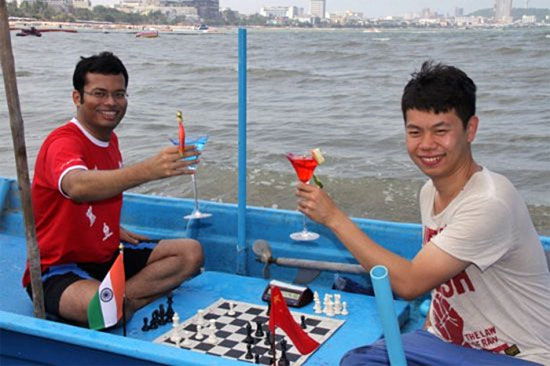
SS: You played 27 games in 34 days! That’s quite a lot. What did you do in between the tournaments?
SG: I didn’t really count the number of days but I trust you! There was not much time in between these tournaments actually. I mostly rested and went out for walks and so on. I did solve some positions and followed games but didn’t push too hard in order to stay fresh for the tournaments.
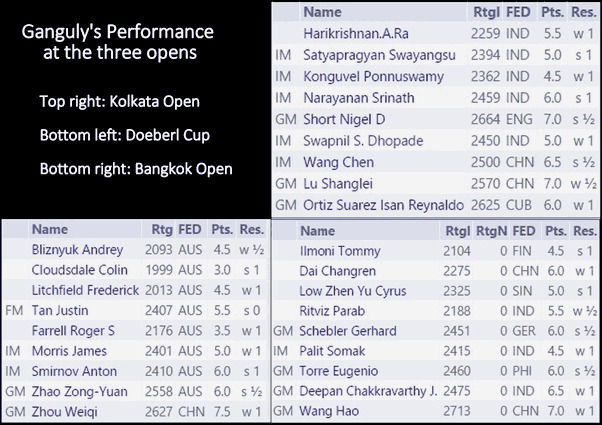
SS: In the Kolkata Open your results show a nearly flawless tournament. However, in Australia you drew with Andrey Bliznyuk (2093) and lost to Justin Tan (2407), in Bangkok you drew against Parab Ritviz (2188) who was rated nearly 350 points below you. How do you recover from such games?
SG: When I decided to play three tournaments in a row, one of which had four double rounds, it was more or less understood that such things could easily happen. In double rounds it’s easy to forget these bad results because there is simply no time to think about it. All I could do after the game was to take a quick nap and get ready for the next game. However, when in Australia I made a first round draw against a player below 2200 I was curious to check my database to see when was the last time such a thing had happened. It goes back 12 years to 2003! Naturally I was not very happy about it and thought such things should not happen again. Well that was not meant to be. In my very next tournament at Bangkok I managed to make a draw again with a player below 2200. There is nothing that can be done in such cases. Best thing is to get some exercise done and get good sleep.
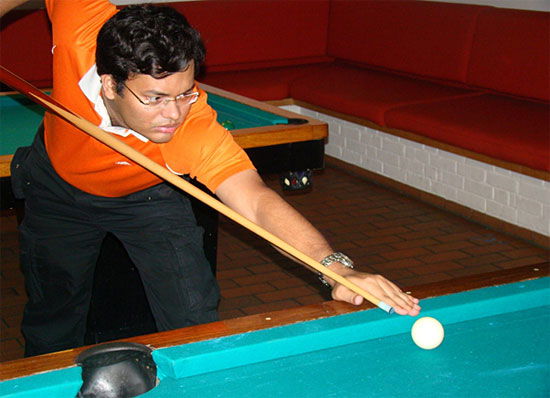
SS: Kolkata and Bangkok had one round a day (except for one double round in Bangkok) but in Australia you played four double rounds! Which format suits you?
SG: It would be very hard to find players who like double rounds or zero tolerance. Sometimes there are no options and you have to do whatever best you can do in the given circumstances. I won my first Indian championship by playing 23 rounds with seven double rounds, scoring 17.5. Nowadays, even two tournaments are not enough to score that! So not that I get scared with double rounds, but like 99% of professional chess players, I hate them!
SS: How important is the role of diet and eating the right type of food in this period of one month?
SG: I think both food and physical activities are equally important. I am extremely flexible with all sorts of cuisine and also in general very experimental with food, so I almost never have any problems with any kind of cuisines. In general I try to avoid Indian food outside India and prefer local food instead. Physical activity plays an important role to keep the energy level high. During the Kolkata Open, where I was staying at my home, I used to play Badminton every night for two hours with my friends. In Australia there was very little time to do anything, so I would take walks, and that would be the only exercise. In Bangkok, I was swimming almost daily to stay in shape.
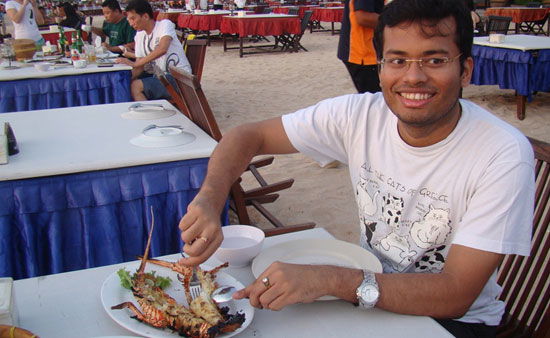
SS: Chinese players are winning so many tournaments. In spite of your last round victory against Zhou Weiqi in Doeberl Cup, he still won the tournament and you just stopped Wang Hao from winning the Bangkok Open after he had a healthy half point lead going into the last round. What’s so special about these Chinese players and why are they winning almost everything and producing such great talents?
SG: I feel it’s the attitude and will to win that makes all the difference. You won’t come across many Chinese players who are ready to make short draws. They have tremendous hunger to win games and championships, irrespective of their ratings. I think this never give up attitude helps them to perform in most of the tournaments they participate. A Chinese opponent is always tough to play and generally they are very unpredictable.
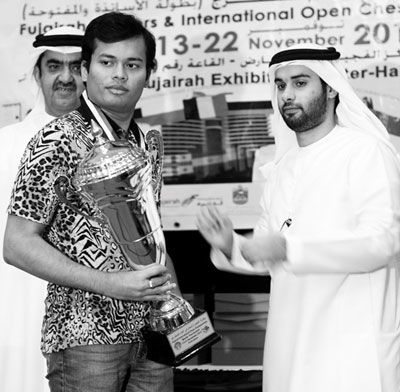
SS: From these 27 games, which one is your favourite? Why?
SG: This is not easy to choose. I liked my game against Ortiz from the last round in Kolkata, where I had to win with the white pieces, was a nice clean victory. My game with Somak from Bangkok was also nice attacking game. However I feel the game that gave me most satisfaction was against Wang Hao at Bangkok last round. It was exactly opposite of my usual style of play and I am very happy with the way I dealt the entire game, constantly posing little problems for my opponent.
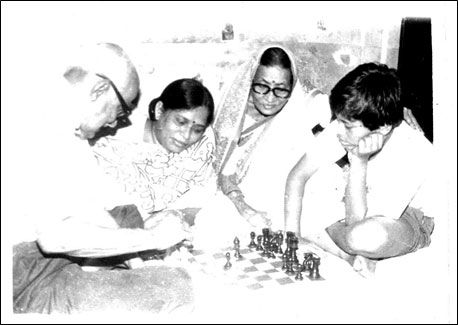
SS: At the start of the year your rating dipped below 2600 for a first time in nearly seven years! From a peak rating of 2672, you came down to 2595. What was the reason for it?
SG: I wish I knew the reason! I guess I was playing badly and my good performances in this period were not consistent enough compared to my bad performances, which is reflected in my rating. It’s not like one fine day I woke up and saw my rating flipped from 2672 to 2627 due to a typo!
SS: And now in the past two months you have gained nearly 30 Elo points, which is not an easy feat at this level. Are things getting back in place for you?
SG: I am not super thrilled with my 2627 rating, but at least I am happy that I have gained some points after a long time. I had a very bad performance at the Qatar Masters, when I came down below 2600. Then Gibraltar was sort of okay until the last round when I lost from a totally winning position [against Deep Sengupta]. From then on I gained some rating in my last four tournaments and hope to give my best in my next events as well.
SS: You were the second of Vishy Anand in his World Championship matches against Kramnik, Topalov and Gelfand. He won all three of them! How was the experience and what were the things that you learnt from this role?
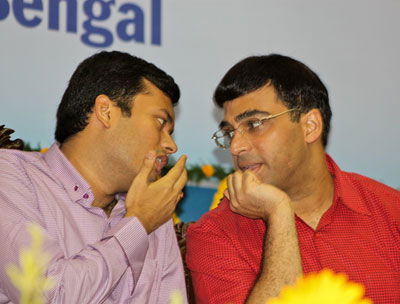
SG: Undoubtedly I have learnt a lot from Anand. It’s a great opportunity to work with him and to get to see such a legendary player, so closely. It’s not only his outstanding talent and the fact that he is a genius in chess, but it’s also his amazing dedication and hard work that have made him five times World Champion. Only when I started to work with him I realised what hard work and dedication mean. It is very difficult to match Anand’s level of commitment, which he maintains even now after achieving literally every possible title available in the chess world.
SS: Since you have stopped being Anand’s second, he has lost both his World Championship matches! What are the reasons for you to stop working as his second?
SG: This has got no connection. Magnus simply played better in these matches and that’s the reason he won. I was part of the training in Germany before the Chennai match, but I was not involved during the match itself. In Sochi 2014 I was neither part of training nor present during the match. I think we all, including Anand himself, were amazed by his performance at the Candidates after losing the Chennai Match. Once again, we all witnessed what Anand is capable of. I wish he wins the 2016 Candidates as well and gets to play Magnus once more.
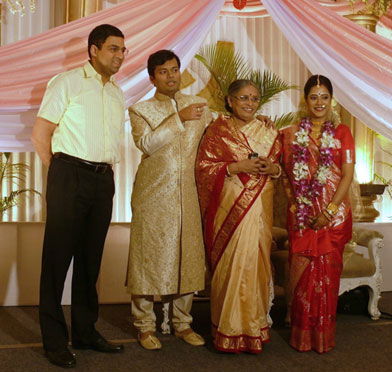
SS: What are your future plans now and what’s next on your agenda?
SG: I have had a very hectic schedule so far in this year. I will now take a break and play in the Edmonton closed tournament at the end of June, which will be followed by the Greek league. It’s time to take a break and get back to training. Although with Shamkir and the World Team championships happening, it’s very difficult to take a rest!
SS: Thank you very much Surya! I know that I have just added to your exhaustion by making you answer so many questions!
SG: Yes you have! It was really long and I am tired of typing ;). But I would have probably answered a hundred questions for you because of our agreement which I vividly remember. For readers I must share this. When Sagar made a video during National Teams at Goa, he told me that the video got some excellent response and if I were to win the Kolkata Open I should give him a big interview for ChessBase which I agreed. Somehow I ended up winning that! Then he waited for me to play well in Australia and Bangkok in order to make it a bigger interview, and now I am absolutely obliged to answer him as many questions as he asks. Also a treat is due for Sagar and his lovely wife Amruta, but that has to wait until we meet.
Achievements of Surya Sekhar Ganguly:
-World U-10 Championship, Warsaw 1991: Won bronze medal in his first foreign trip, at the age of eight.
-World U-10 Championship, Bratislava 1993: Shared bronze medal with Jakovenko, ahead of Grishchuk.
-World U-12 Championship, Szeged 1994: Shared bronze medal with Ponomariev, Vallejo Pons behind Levon Aronian and Bacrot, and ahead of Grishchuk.
-World U-12 Championship, St. Lorenzo 1995: Won silver medal behind Bacrot.
-In 1995, at the age of 11, he beat a Grandmaster, the youngest player ever to do so until that time.
-Ganguly became an International Master at 16 and a Grandmaster at 19.
-He won Indian National Championship for a record six consecutive times from 2003–2008.
-Winner of the Asian Championships in 2009.
-World Team Chess Championship 2010: His team India won bronze and he won the individual gold for himself.
-Winner of many international events like Bangladesh International 2005, ONGC International 2006, Sydney International 2008, Parsvanath 2009, Indonesia Open 2011, Fujairah Open 2012.and many more.
-He was awarded the Arjuna Award in 2005 by the Government of India for his outstanding achievement in sports.
-He worked in the team of seconds that assisted Anand in winning the World title matches against Vladimir Kramnik, Veselin Topalov and Gelfand in 2008, 2010 and 2012 respectively.

